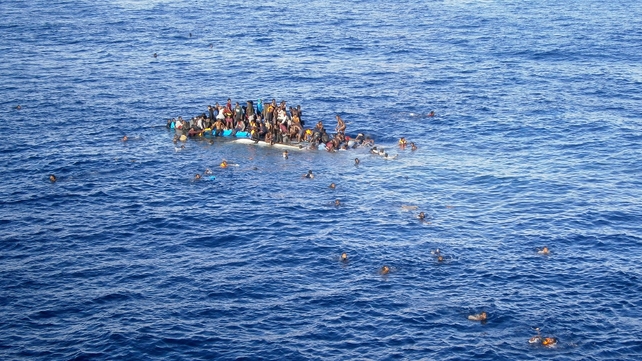By Kyle Herda
Impunity Watch Reporter, Europe
BRUSSELS, Belgium – Following the disasters in the Mediterranean Sea over the past week that saw over 1,000 migrants killed when two separate ships capsized, the European Union has come together to work on a solution.

After European Council President Donald Tusk and European Commission President Jean Claude Juncker brought together EU leaders to discuss the disaster, four “priority areas for action” were agreed upon: “to strengthen the EU’s presence at sea, to fight the traffickers, to prevent illegal migration flows and to reinforce internal solidarity and responsibility.” The idea behind these focal points is to not only address the situations as they arise, but also to try and combat the problem at the source. The European Commission aims to release its European Agenda on Migration on May 13th.
One issue that must be resolved is where the migrants will go once they are saved, and the Commission has stated that it seeks to work on quota issues throughout the EU. Ireland has already stepped up and agreed to take 220 Syrians after they have been recognized as refugees by the United Nations refugee agency, in addition to the 114 refugees Ireland has already agreed to take in under the Syria Humanitarian Assistance Programme.
With over 10,000 migrants saved from the Mediterranean between Italy and Libya just over the past week, this is a pressing issue that must be solved now. According to the International Organization for Migration, 1,727 have died already this year trying to cross the Mediterranean, as opposed to 56 last year by this time. The EU members have already agreed to triple funding for border operations from 2.9 million euros a month to nearly 10 million. In addition to this increased support for saving migrants in the Mediterranean, there is also a movement for “declaring war on smugglers,” according to the EU Commissioner for Migration. Military action against the traffickers may take a few months to work out, but the EU has assigned EU foreign policy chief Federica Mogherini to fine possible military actions the EU may take.
For more information, please see:
RTE News – EU to triple funding for migrant search and rescue missions – 24 April 2015
European Commission – EU leaders agree actions to tackle Mediterranean tragedy – 24 April 2015
Fox News – EU leaders commit ships, aid for action on migrants – 23 April 2015
USA Today – EU agrees to send more ships to stem migrant crisis – 23 April 2015
The Wall Street Journal – EU to Triple Funding for Sea Patrols in Migration Crisis – 23 April 2015


